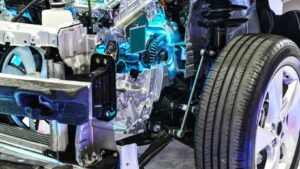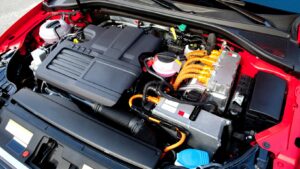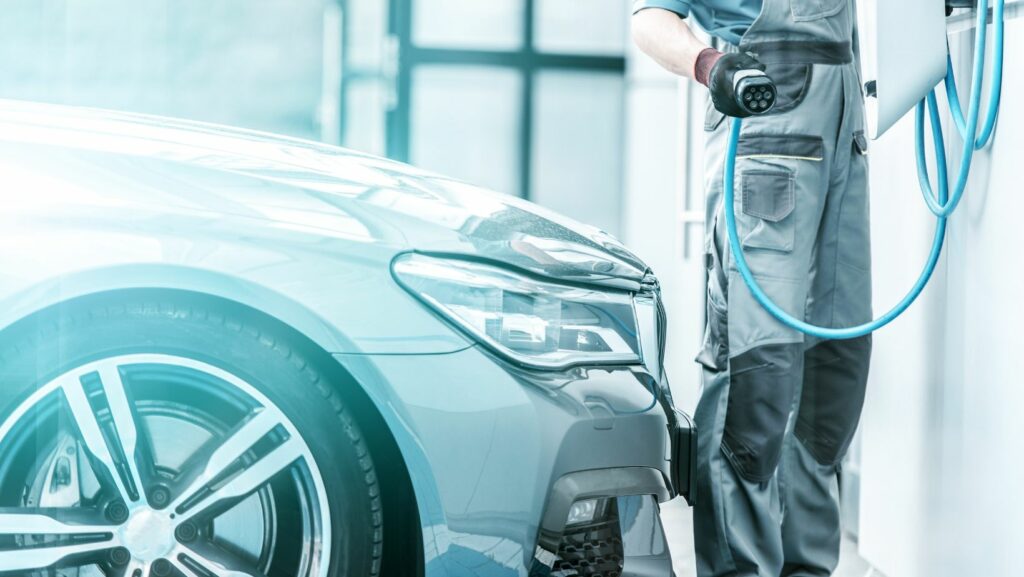Hybrid Car Maintenance
- Unique Maintenance Requirements: Hybrid cars require specialized maintenance due to their combination of gasoline engines and electric motors, which is crucial for optimal performance and longevity.
- Regular Inspections and Monitoring: Routine checks of the battery system, brake components, and fluid levels are essential for preventing costly repairs and maintaining fuel efficiency.
- Certified Technicians are Essential: Using certified technicians with hybrid-specific knowledge ensures that maintenance tasks are performed correctly and can help maintain warranty coverage.
- Prompt Attention to Warning Lights: Addressing dashboard alerts promptly can prevent small issues from escalating into expensive problems, extending the life of the vehicle.
- Understanding Cost Factors: Maintenance costs for hybrid vehicles can be higher due to specialized components and labor, but regular upkeep can lead to long-term savings through improved fuel efficiency and reduced emissions.
- Environmental Impact: Well-maintained hybrid cars contribute to environmental sustainability by operating more efficiently and reducing carbon footprints.
As hybrid cars gain popularity for their eco-friendly benefits and fuel efficiency, many owners are eager to understand how to keep these vehicles in top shape. Unlike traditional cars, hybrid vehicles combine both gasoline engines and electric motors, which means their maintenance requires a unique approach.
Proper care can extend the life of a hybrid car while ensuring optimal performance. From battery health to brake systems, understanding the specific maintenance needs is crucial for every hybrid owner. This guide will explore essential tips and insights to help navigate the world of hybrid car maintenance, making it easier to enjoy the ride for years to come.
Importance of Hybrid Car Maintenance
Proper maintenance is crucial for hybrid cars due to their complex systems. Hybrid vehicles utilize both gasoline engines and electric motors, making their upkeep different from traditional cars. Regular maintenance ensures reliability and longevity, enhancing performance and safety.
Understanding unique maintenance needs is essential. Regular inspections of the battery system, electric motor, and regenerative braking components can prevent costly repairs. Maintaining optimal battery health contributes to improved fuel efficiency and reduced emissions.

Scheduled maintenance tasks include checking fluid levels, such as coolant and brake fluid, and replacing air filters. Keeping these components in check enhances overall vehicle performance. Maintaining tire pressure and alignment is equally important, as it affects handling and fuel economy.
Hybrid vehicles often feature specialized components that require expert knowledge. Routine maintenance conducted by certified technicians ensures that these elements receive the attention they need. Utilizing dealership services or shops experienced in hybrid technology helps maintain warranty coverage and guarantees quality service.
Addressing any warning lights on the dashboard promptly is vital for preventing potential issues from escalating. Timely responses to maintenance alerts can save money and extend the life of the vehicle. Regular software updates may also improve system efficiency and overall performance.
Emphasizing hybrid maintenance not only prolongs the vehicle’s lifespan but also supports environmental sustainability. Well-maintained hybrids operate more efficiently, contributing to reduced carbon footprints. Prioritizing maintenance leads to enhanced driving experiences and maximized returns on investment.
Common Hybrid Car Maintenance Tasks
Hybrid car maintenance involves a few essential tasks that ensure optimal performance and reliability. Routine care of specialized components plays a critical role in extending the vehicle’s lifespan.
Battery Inspection and Care
Regular battery inspection is crucial for hybrid vehicles. Technicians assess the battery’s health, checking for corrosion and ensuring connections are secure. Maintaining optimal battery charge levels contributes significantly to overall fuel efficiency. It’s advisable to test the battery’s state of charge and balance regularly, especially before long trips or during extreme weather conditions. Specific battery maintenance tasks include cleaning terminals and ensuring adequate coolant levels in battery cooling systems.
Brake System Maintenance
Brake system maintenance requires special attention in hybrid cars. Regenerative braking systems utilize electric motor assistance, which lessens wear on traditional brake components. Scheduling brake inspections ensures friction materials, rotors, and hydraulic systems function efficiently. Technicians should check brake fluid levels, as consistent fluid quality prevents moisture accumulation, which can lead to brake failure. Routine replacement of brake pads and fluid, based on manufacturer recommendations, effectively maintains braking performance.
Unique Challenges of Hybrid Car Maintenance
Hybrid vehicles present distinct challenges that require specialized knowledge and equipment for effective maintenance. Owners must understand these complexities to ensure the longevity and performance of their cars.
Specialized Tools and Equipment
Maintaining hybrid cars necessitates specific tools and equipment not found in standard garages. Certified technicians equipped with hybrid diagnostic tools can accurately assess various systems, including battery health and electric motor functionality. Diagnostic software tailored for hybrid models helps identify issues quickly.
Proprietary equipment for handling high-voltage batteries minimizes risks during service. For instance, insulated tools mitigate the danger of electric shock when working on the battery pack. Proper workshop facilities with adequate ventilation also benefit overall vehicle performance and safety.
Understanding Hybrid Technology
Understanding hybrid technology is crucial for effective maintenance. Hybrid cars commonly blend gasoline engines with electric motors and regenerative braking systems. This integration demands thorough knowledge of both systems, as neglecting one could affect the other.
Battery health management plays a vital role in maximizing performance. Regular checks for coolant levels and electrical connections support efficient operation. Moreover, technicians should be familiar with driving habits that influence battery longevity, such as frequent short trips versus longer drives.
Vehicle software updates improve system efficiency, enhancing vehicle responsiveness and fuel economy. Awareness of how hybrid systems interact aids in addressing maintenance issues proactively. This comprehensive understanding equips owners and technicians to address challenges, ensuring reliable and efficient operation.
Cost Considerations for Hybrid Maintenance
Understanding the cost implications of hybrid car maintenance is crucial for owners. Hybrid vehicles often involve different components than traditional vehicles, leading to varied maintenance costs.
Battery Replacement Costs
Battery replacement remains a significant expense for hybrid owners. Most hybrid vehicle batteries last between 8 to 15 years, depending on usage and driving conditions. Replacement costs can range from $1,000 to $6,000, influenced by the make and model of the vehicle and the type of battery used.
Regular Maintenance Costs
Regular maintenance costs for hybrids can differ from those of conventional vehicles. Typical services may include oil changes, tire rotations, and brake inspections. Oil changes for hybrids generally cost 10% more due to specialized oil requirements. Brake maintenance can be less frequent, as regenerative braking reduces wear on traditional brake components, potentially lowering overall costs.
Extended Warranty Considerations
Purchasing an extended warranty is an investment consideration for hybrid owners. Many manufacturers provide warranties that cover hybrid components, including batteries. Extended warranties can range from $1,500 to $3,500, and they often cover maintenance costs for a specified duration or mileage.
Specialized Labor Costs
Labor costs for hybrid maintenance tend to be higher due to the need for specialized training. Certified technicians often handle hybrid vehicle repairs, resulting in hourly rates that can be 20% to 30% higher than standard maintenance services. This investment, however, ensures that specialized systems receive proper care.
Parts Availability and Costs
Access to hybrid vehicle parts can affect maintenance expenses. While many common components are similar to those in traditional cars, unique hybrid parts may be less readily available, causing higher costs. Owners should plan for potential price increases when dealing with specialized components.
Environmental Benefits
Investing in hybrid maintenance can lead to long-term savings due to enhanced fuel efficiency. Maintaining optimal battery health and ensuring efficient operation can improve mileage, resulting in reduced fuel costs over time. Prioritizing maintenance also contributes to lower emissions, supporting environmental sustainability efforts.
Understanding these cost considerations allows owners to budget effectively and maximize their investment in hybrid technology.
Longevity and Optimal Performance
Maintaining a hybrid car is essential for ensuring its longevity and optimal performance. By focusing on routine inspections and addressing any issues promptly, owners can prevent costly repairs and enhance fuel efficiency. Choosing certified technicians familiar with hybrid technology guarantees that specialized components receive the care they need.
Investing in regular maintenance not only supports the vehicle’s health but also contributes to environmental sustainability. With the right approach to hybrid car care, drivers can enjoy a reliable and efficient driving experience while maximizing their investment in this eco-friendly technology. Prioritizing maintenance is a smart choice that pays off in the long run.

